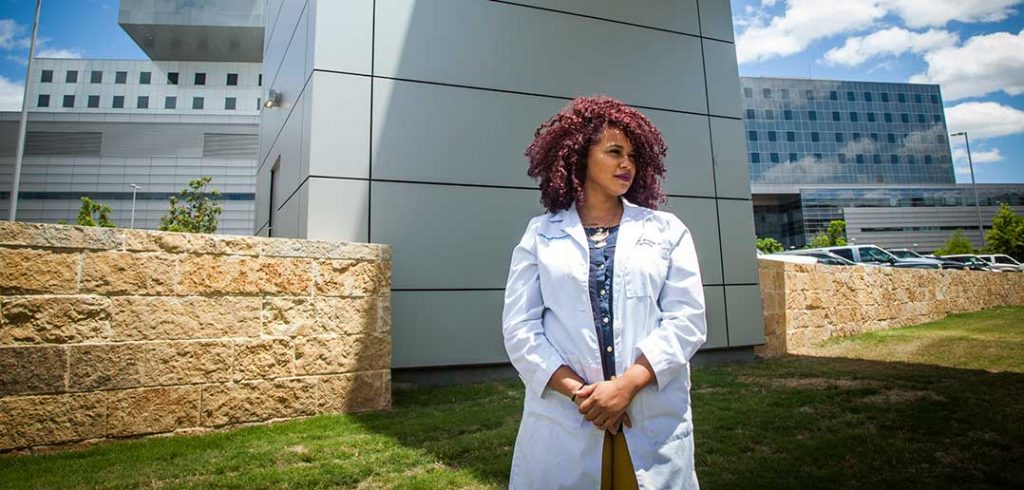When Carlisdania Mendoza, M.D., left New York to begin medical school at Duke University, she brought many of Fordham’s Jesuit values with her.
When it comes to service, the 2012 Fordham College at Lincoln Center graduate explains, her undergraduate experience taught her that “you don’t do things reflexively, but you’re rigorous and methodical and reflect on what you’re bringing to the table. Being partners with the community is more enriching for everyone involved.”
As part of both STEP and CSTEP at Fordham—two New York state programs designed to support minority students and prepare them for careers in science, health, and technology—Mendoza had mentored younger students, organized cancer walks, volunteered with those affected by cerebral palsy, and much more. It was through these programs that Mendoza first realized she wanted to study medicine.
Once in North Carolina, she joined Duke’s new primary care track on a half-tuition scholarship. She also maintained her focus on service and began working with a support group for transgender Latina women, including some who were undocumented.
But she wanted to do more. “I knew I could go deeper,” she says, “and also help [these women]live longer and trust the medical system. What’s more humanizing than acknowledging that someone has a need and then helping them get that?”
Mendoza was frustrated when she couldn’t get the support she needed to create a medical clinic for the women, but the experience made her rethink her trajectory. Midway through medical school, she gave back her scholarship and switched to Duke’s psychiatry track, a bold move that did not surprise Renaldo Alba, FCRH ’02, GSE ’10, associate director of Fordham’s STEP and CSTEP programs.
“Carli is strong-willed and stubborn in her principles. She doesn’t do things because they are financially convenient,” Alba says. “And that’s what we need. When we are most vulnerable, we need conscientious dissenters.
“Other folks are looking to win, win, win. Carli is looking to do good, good, good.”
Though Mendoza initially wanted to be a neurosurgeon, she had not considered the mental health field until she entered medical school. “I’m a one-and-a-half generation immigrant,” says Mendoza, who was born in the Dominican Republic and moved to the Bronx with her family when she was 10, “so my views on mental health were very limited. My community looks at mental health like it’s a white problem.”
But during her psychiatry clinic, Mendoza realized how rewarding she found working with mentally ill patients. “It felt very easy and natural for me,” she says. At the same time, the women in the support group were expressing a need for mental health services. “They’re under acute stress on a regular basis,” she says, “so it was a really important need that they identified.”
Now, having graduated from Duke in 2016 and completed the first year of her psychiatric residency at University of Texas Southwestern in Dallas, Mendoza knows she’s found her path. “I just feel so energized working with people and achieving goals with them,” she says.
But she’s looking forward to returning to New York after her residency, when she hopes to help develop intervention programs that could help LGBTQ, trans, gender-nonconforming, and sex worker communities struggling with mental health issues.
“I’ve realized how much I enjoyed my work at CSTEP, so I also hope I can collaborate with Fordham again in some way.”
Are you a graduate of Fordham CSTEP? Join us for our 30th Anniversary celebration on Saturday, June 3, during Jubilee.

